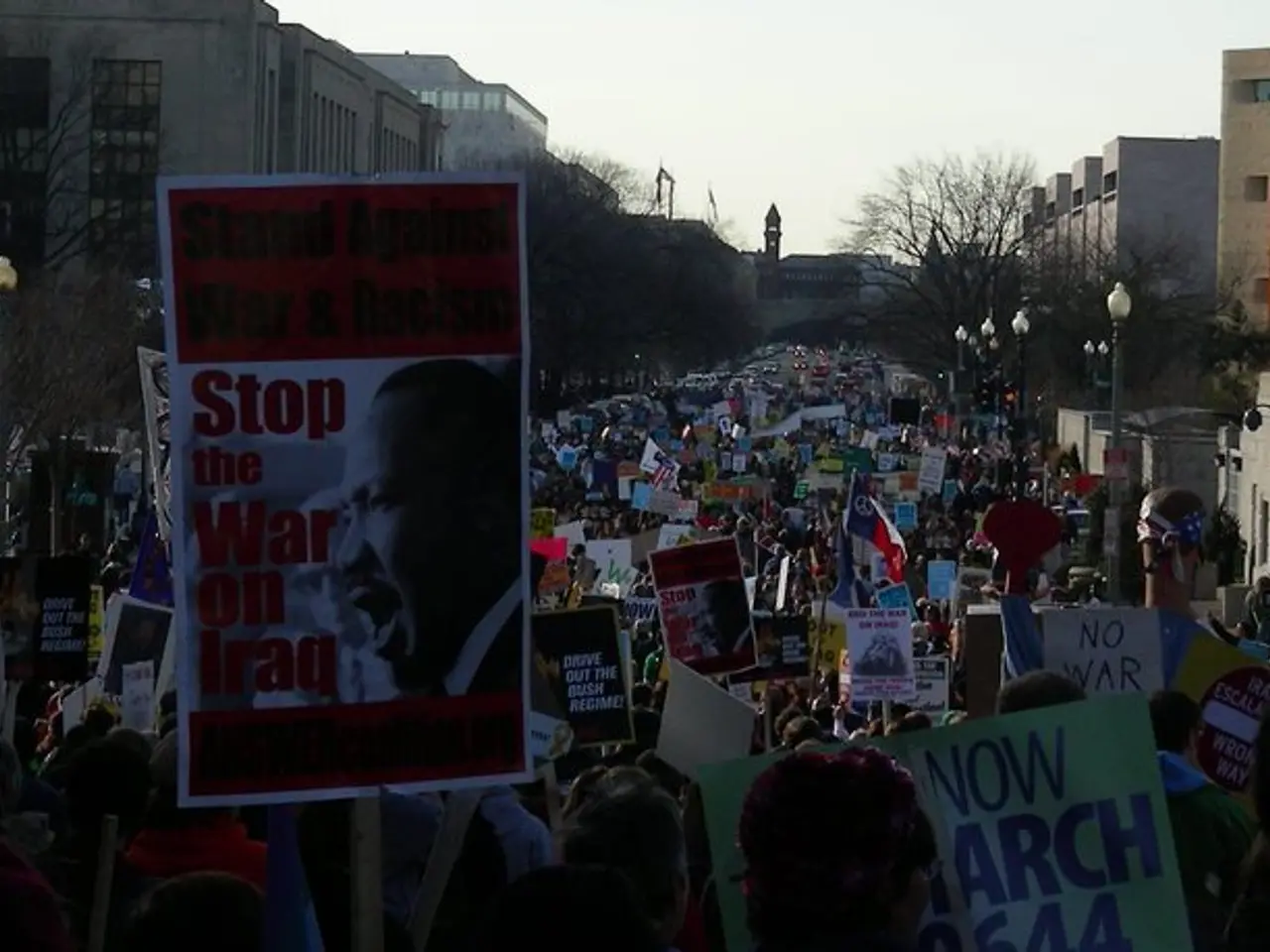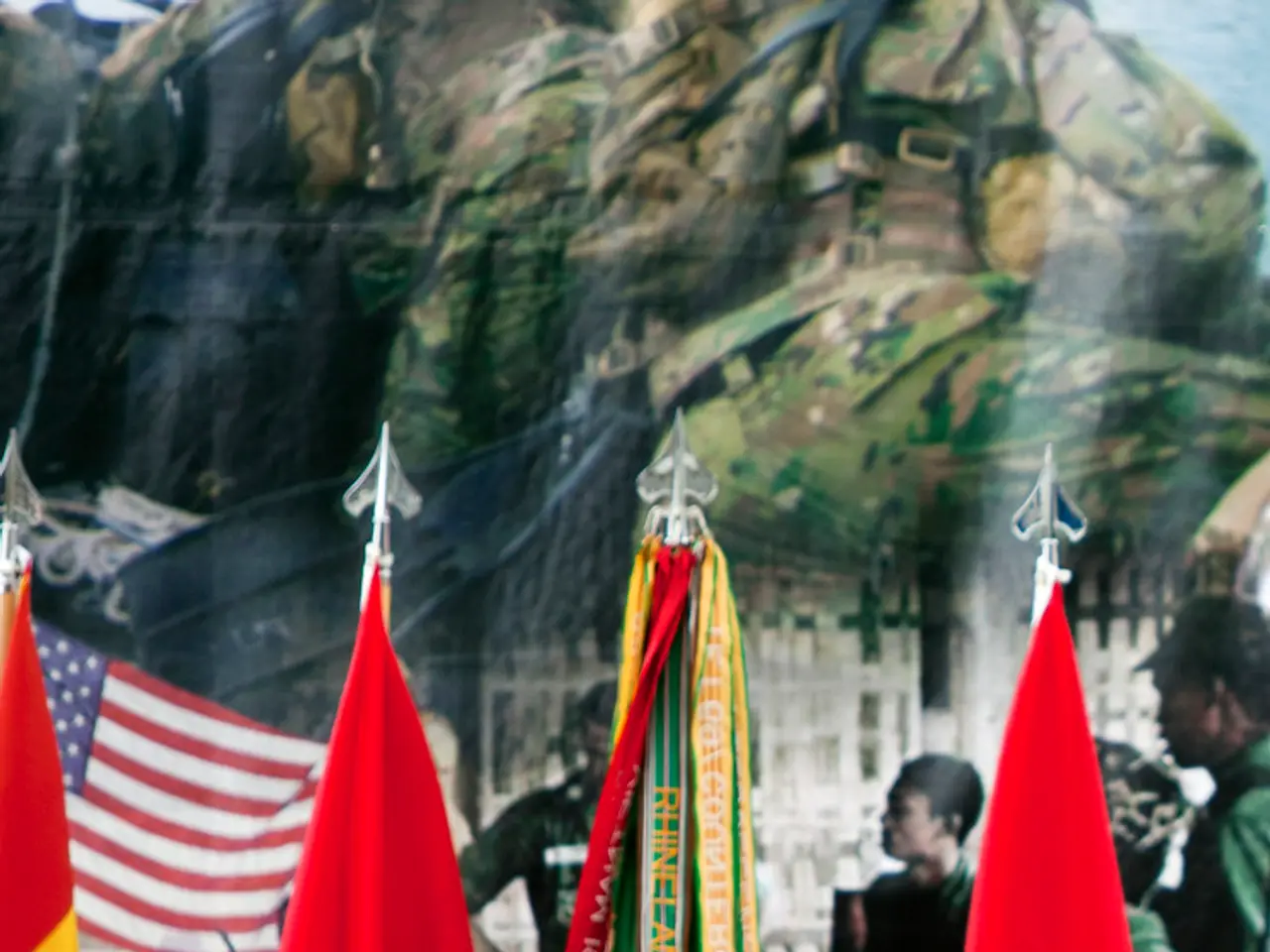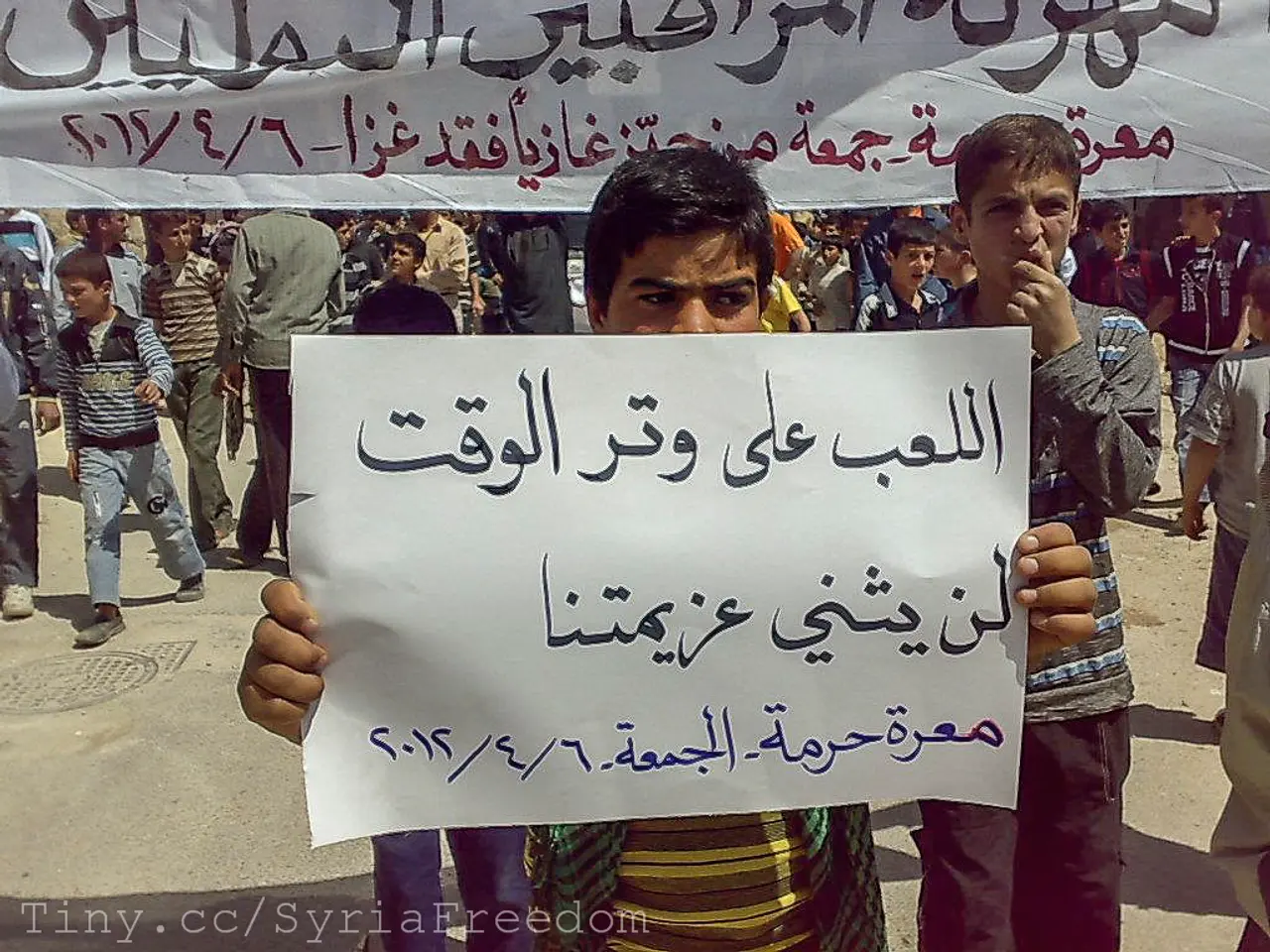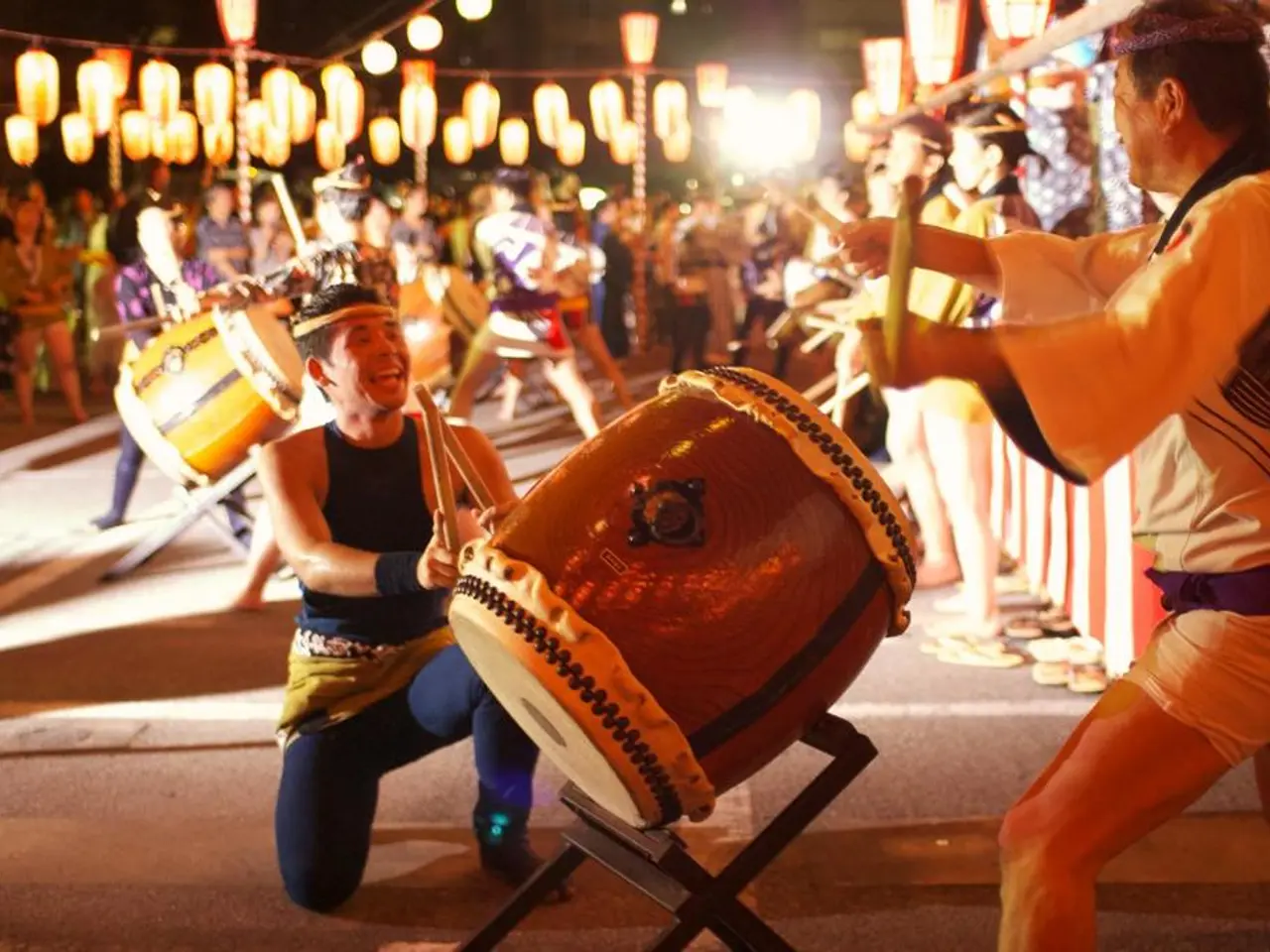Discussion on the 80th Anniversary of Nuclear Bomb Droppings: Enduring Effects Examined
In the heart of Peace Memorial Park, Hiroshima, stands a solemn reminder of the devastating atomic bombing that occurred 80 years ago - the Hiroshima Victims Memorial Cenotaph. The bombings, which took place on August 6 and 9, 1945, resulted in the death of between 100,000 and 200,000 people, with many dying instantly and others suffering long-term effects from radiation exposure.
The bombings, a pivotal moment in World War II, ushered in the nuclear age and significantly influenced international relations and military policy in the subsequent decades. However, Margarita Estevez-Abe, an associate professor of political science at Syracuse University's Maxwell School of Citizenship and Public Affairs, argues that the world has failed to learn the crucial lessons from these events.
Estevez-Abe's research focuses on political economy and Japanese politics. She is a senior research associate and advisory committee member with the East Asia Program at Syracuse University, and a faculty affiliate of the Aging Studies Institute. Her perspective on the long-term effects and legacy of the atomic bombings of Hiroshima and Nagasaki is stark.
She reflects critically on the continuing global attitude toward nuclear weapons, noting that they remain framed primarily as tools of national security rather than as a profound humanitarian catastrophe that demands disarmament awareness. Estevez-Abe points out that in Japan, some people are even contemplating nuclear weapons as a means to bolster national security, illustrating the persistence of nuclear strategies rather than a full reckoning with the bombings' devastation and moral implications.
Estevez-Abe urges younger generations to remember the unparalleled destruction experienced by Japan, especially since the continental U.S. has never endured an attack of similar magnitude. This emphasis stresses the importance of historical memory to prevent future horrors, highlighting an ongoing educational and commemorative effort regarding Hiroshima and Nagasaki.
For those interested in speaking with Professor Estevez-Abe, contact Vanessa Marquette at [email protected]. The photo of the Hiroshima Victims Memorial Cenotaph was taken by Vanessa Marquette.
[1] Estevez-Abe, M. (2021). The Atomic Bombings of Hiroshima and Nagasaki: A Persistent Warning Unheeded. Journal of Contemporary Asia. [3] Estevez-Abe, M. (2022). Remembering Hiroshima and Nagasaki: Historical Memory and the Prevention of Future Horrors. Political Science Quarterly.
- Margarita Estevez-Abe's research in political science, particularly her focus on the atomic bombings of Hiroshima and Nagasaki, reveals a critical perspective on the global attitude towards nuclear weapons, arguing that they are seen primarily as tools of national security rather than recognized as a catastrophic humanitarian issue demanding disarmament awareness.
- In her works published in the Journal of Contemporary Asia (2021) and Political Science Quarterly (2022), Margarita Estevez-Abe emphasizes the importance of remembering the destruction of Hiroshima and Nagasaki in order to prevent future horrors, highlighting the need for ongoing educational and commemorative efforts regarding these events.








